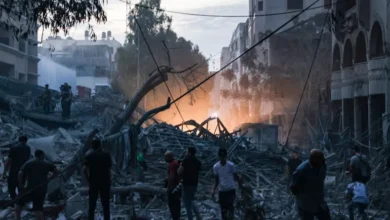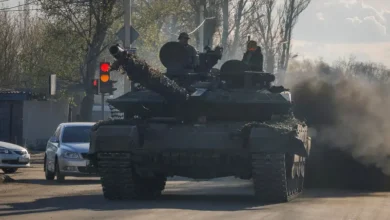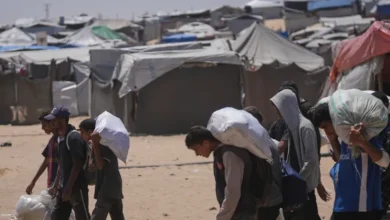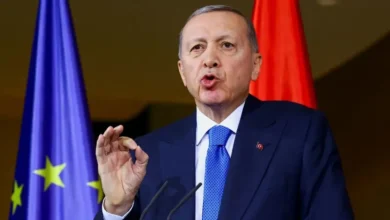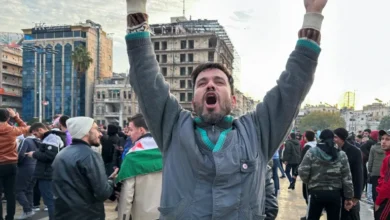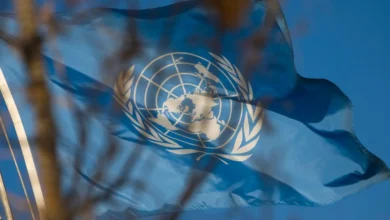Israel’s war on Gaza and the ‘obligation to prevent genocide’
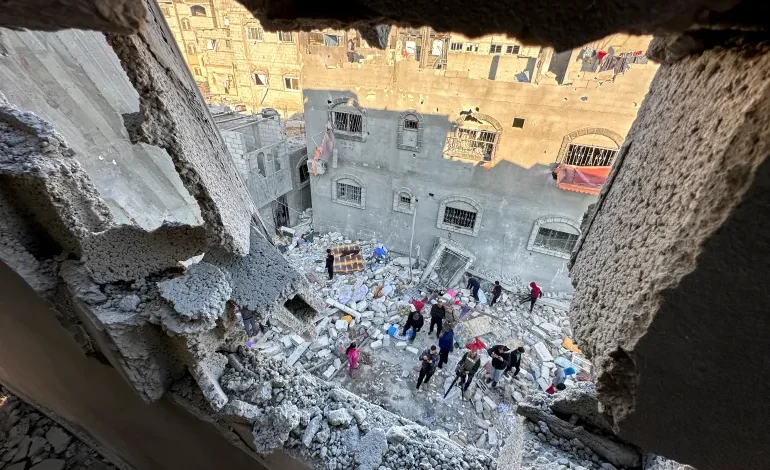
It was just days into Israel’s bombardment of the Gaza Strip when a grave warning rang out.
United Nations experts had sounded the alarm that Palestinians in Gaza faced a risk of genocide. The Israeli army was battering the coastal enclave, forcing most of the population from their homes and imposing a stringent blockade barring food, water and other supplies from getting in.
More warnings have since followed alongside calls for the international community to act.
Now, as the International Court of Justice (ICJ) is set to hear a case alleging Israel is committing genocidal acts in Gaza, global attention is again focused on what can — or should — be done to stop the war and prevent crimes like genocide.
South Africa, the country that brought the case to the ICJ, invoked in its decision an “obligation to prevent genocide” as a signatory to the United Nations Genocide Convention — something experts say is a critical step in such cases.
“Genocide is seen as having under international law this special character that it’s relevant to everyone,” explained Mark Kersten, assistant professor of criminology and criminal justice at University of the Fraser Valley in Canada.
The convention
Signed in 1948 in the aftermath of World War II, the Convention on the Prevention and Punishment of the Crime of Genocide — the Genocide Convention — “codified for the first time the crime of genocide”.
It “signified the international community’s commitment to ‘never again’ after the atrocities committed during the Second World War”, the UN says on its website.
Today, 153 countries are parties to the convention, confirming “that genocide, whether committed in time of peace or in time of war, is a crime under international law which they undertake to prevent and to punish”.
States can meet their obligation to prevent genocide in several ways, including by appealing — as South Africa has done — to the ICJ, the UN’s top court.
In its filing, South Africa argued that Israel has not only “failed to prevent genocide”, but it also “engaged in, is engaging in and risks further engaging in genocidal acts against the Palestinian people in Gaza”.
“The acts in question include killing Palestinians in Gaza, causing them serious bodily and mental harm, and inflicting on them conditions of life calculated to bring about their physical destruction. The acts are all attributable to Israel, which has failed to prevent genocide and is committing genocide in manifest violation of the Genocide Convention,” the submission (PDF) reads.“South Africa is acutely aware of the particular weight of responsibility in initiating proceedings against Israel for violations of the Genocide Convention. However, South Africa is also acutely aware of its own obligation — as a State party to the Genocide Convention — to prevent genocide.”
This goes further than other genocide cases previously heard by the court, said Kersten.
An important precedent, however, was a case (PDF) brought by The Gambia in 2019. It argued that Myanmar was committing genocide through actions “intended to destroy” the mostly Muslim Rohingya minority group “in whole or in part”.
The proceedings are ongoing, and Canada, France, the United Kingdom and other countries late last year filed a joint petition in support of The Gambia’s case.
“This case confirms that any contracting party can bring a case under the Genocide Convention,” said Amanda Ghahremani, an international criminal lawyer and research fellow at the Human Rights Center at the University of California, Berkeley, in the United States. “It doesn’t necessarily have to be a case between the states that are directly involved.”
